Best Solar Powered Security Camera: Top Options Compared
In an age where home security is paramount, solar-powered security cameras have emerged as an eco-friendly, cost-effective, and efficient solution for modern households. These cameras combine advanced technology with sustainability, ensuring 24/7 surveillance without the need for frequent battery changes or increased electricity bills. However, it's essential to note that these battery-powered security cameras rely on external solar panels for power rather than having built-in solar panels, and all solar panels are sold separately as add-ons. This guide will help you navigate the best wireless cameras compatible with solar panels available in 2024.
Why Choose a Solar Powered Security Camera?
The demand for solar-powered security cameras is growing rapidly, driven by their ability to harness renewable energy while offering seamless functionality. Here’s why they’re becoming a popular choice:
- Sustainability: Solar-powered battery cameras reduce reliance on traditional power sources, making them an environmentally friendly option.
- Reduced Electricity Costs: By utilizing solar panels, these cameras cut down on utility bills over time.
- Ease of Installation: Most solar security cameras are wireless, simplifying installation and avoiding complicated wiring setups.
Explore our curated collection of solar-powered smart cameras to find the perfect fit for your home.
Best Overall Solar Camera: Arlo Pro 4

If you're looking for a solar-powered camera that balances exceptional performance with versatility, the Arlo Pro 4 is an excellent choice. This camera offers advanced features like 2K HDR video quality, wide-angle coverage, and seamless integration with smart home platforms, making it ideal for both tech-savvy homeowners and beginners alike.
Features
- Color Night Vision: This advanced feature enables vibrant video quality even in low-light environments.
- 160-Degree Field of View: Provides comprehensive coverage, making it ideal for wide-open spaces.
- 12x Digital Zoom: Allows users to focus on specific areas without losing clarity.
- Weather-Resistant Design: Built to endure harsh conditions, ensuring uninterrupted operation.
- Smart Home Integration: Compatible with Alexa, Google Assistant, and Apple HomeKit for seamless control.
The Arlo Pro 4 also offers customizable motion zones, reducing false alerts by focusing on the areas that matter most. With its two-way audio, you can communicate with visitors or deter potential intruders directly through the Arlo app.
Pros and Cons
Pros:- Exceptional 2K HDR video resolution.
- Reliable motion detection and customizable zones.
- Works with multiple smart home platforms, including IFTTT.
- Advanced features, such as cloud storage, need a subscription plan.
For optimal performance, consider pairing it with a removable solar panel like the Wasserstein Solar Panel compatible with Arlo Pro, which ensures continuous power supply to it rechargeable battery in varying weather conditions. While the panel is an additional investment, its reliability eliminates frequent battery replacements, enhancing convenience.
Best Budget Solar Camera: Wyze Battery Cam Pro

If you’re searching for an affordable solar security camera with advanced capabilities, the Wyze Battery Cam Pro is a strong contender. With its wireless functionality and solar panel compatibility, this camera is ideal for budget-conscious homeowners looking for reliable outdoor surveillance.
Features
- 2K Video Resolution: Captures sharp and detailed video footage, outperforming many competitors in its price range.
- Built-in Spotlight: Enhances night vision with color footage, increasing nighttime security.
- Smart Detection Filters: Allows you to filter motion alerts by person, package, pet, or vehicle, reducing unnecessary notifications.
- Weatherproof Build: Rated IP65, ensuring durability in harsh outdoor conditions.
- Seamless App Experience: Features intuitive controls and one of the fastest load times in its class.
Pros and Cons
Pros:- Excellent video resolution for a budget-friendly price.
- Customizable motion detection reduces false alarms.
- Support for local storage with a microSD card.
- Some features require a Cam Plus subscription for full functionality.
- Limited integration with smart home ecosystems.
For extended usage, consider pairing it with a Wyze-compatible solar panel to ensure continuous power, making it even more cost-effective.
Best Wireless Solar Camera: Blink Outdoor

For those seeking a versatile and weatherproof security camera, the Blink Outdoor 4 is a reliable choice. This outdoor camera delivers robust performance with a focus on flexibility and convenience, making it a great option for homeowners who prioritize ease of use.
Features
The Blink Outdoor 4 improves upon its predecessors with a range of enhanced features:
- 1080p Video Resolution: Ensures clear and detailed video footage for everyday surveillance.
- Upgraded Motion Detection: Features dual-zone motion detection to reduce false alerts and improve accuracy.
- Extended Battery Life: Up to two years of battery power (2 AA lithium batteries) depending on usage and settings.
- Customizable Activity Zones: Allows users to designate specific areas for motion alerts.
- Weather-Resistant Design: Rated to withstand rain, snow, and other outdoor conditions.
Pros and Cons
Pros:- Simple, wire-free setup that’s ideal for DIY installations.
- One of the most affordable outdoor cameras, with no requirement for professional installation.
- Offers both cloud storage and local storage options with the Blink Sync Module 2.
- 1080p resolution is sufficient but less sharp compared to higher-end models.
- Advanced features like person detection require a subscription to Blink’s cloud service.
To maximize its potential, pair the Blink Outdoor 4 with a Blink-compatible solar panel for continuous, eco-friendly power. Check out this guide for connecting your Blink Outdoor to the panel to get started.
Best for Smart Home Integration: Google Nest Cam (Battery)

The Google Nest Cam (Battery) is a standout choice for homeowners looking to integrate advanced security with their smart home ecosystem. Its sleek design, robust performance, and AI-driven features make it a versatile and reliable option for indoor and outdoor use.
Features
The Google Nest Cam (Battery) combines cutting-edge technology with practical functionality, including:
- 1080p HDR Video Quality: Provides sharp, clear, and vibrant footage during day and night.
- Built-in AI Alerts: Recognizes and differentiates between people, animals, and vehicles without requiring a subscription.
- Activity Zones: Customize specific areas for motion detection to reduce unnecessary alerts.
- Battery-Powered Versatility: Operates wire-free, offering flexibility in placement indoors or outdoors.
- Weather-Resistant Design: Built to withstand outdoor elements, ensuring consistent performance year-round.
Pros and Cons
Pros:- Exceptional AI-based detection capabilities, even without a subscription.
- Seamless integration with Google Home for smart automation.
- Supports 3 hours of event video history for free, with options to upgrade.
- Higher price point compared to some competitors.
- Extended video history and advanced features require a Nest Aware subscription.
For uninterrupted solar power, pair it with a Nest-compatible solar panel. This combination enhances sustainability while minimizing the need for battery replacements.
Best for High-End Features: Ring Spotlight Cam Solar

The Ring Spotlight Cam Solar is an excellent choice for homeowners looking for reliable outdoor security. With its solar-powered design, HD video quality, and motion-activated integrated spotlight, it offers both protection and convenience. Easy to install and compatible with Alexa, this camera is a top contender for anyone seeking advanced features in their security system.
Features
- 1080p HD Video: Clear and sharp video quality for day and night surveillance.
- Color Night Vision: Enhanced visibility in low-light conditions.
- Motion-Activated LED Spotlights: Illuminate areas when motion is detected.
- Solar-Powered: Continuously charges the battery via solar panel.
- Two-Way Talk: Communicate directly with visitors through the Ring app.
- Quick Release Battery Pack: Easily swap out for uninterrupted power.
Pros and Cons
Pros:- Solar Power: Reduces maintenance by keeping the battery charged.
- Clear Night Vision: Excellent low-light performance with color night vision.
- Easy Installation: Quick setup without professional help.
- Alexa Integration: Seamless integration with Alexa for smart home automation.
- Sunlight Dependency: Solar panel requires direct sunlight for optimal performance.
- Limited Motion Range: May not cover large areas without additional cameras.
- Subscription Needed: Requires a subscription for extended video storage and advanced features.
For more information, check out Wasserstein’s Ring Camera Solar Panel. To troubleshoot charging issues, visit this guide.
What to Consider When Choosing the Best Solar Powered Security Camera
Choosing the right solar-powered security camera involves evaluating several factors that influence performance, convenience, and security. Here's a detailed guide to help you make an informed decision, considering aspects such as wireless vs. wired options, video quality, battery life, smart features, and durability.
Wireless vs. Wired Options
One of the key decisions when selecting a solar-powered security camera is whether to choose a wireless or wired model.
- Wireless Solar-Powered Cameras: These offer significant advantages in terms of flexibility and ease of installation. Without the need for complex wiring, they can be easily installed in a variety of locations, including hard-to-reach areas, such as corners of your yard or the top of your home. Wireless models typically connect via Wi-Fi, providing remote access and seamless integration with your smart devices. The major benefit here is the ability to relocate the cameras as needed, without worrying about power outlets or cables.
- Wired Cameras: While they may not offer the same level of flexibility as wireless cameras, wired options can provide more consistent power. The wires directly connect to the camera, ensuring uninterrupted service. However, installation tends to be more labor-intensive, and you will need to account for the location of power sources.
Video Quality

The video resolution of a security camera is crucial to effectively monitor and capture important details. Cameras with high-definition video (HD), 2K, or even 4K resolution can provide clearer footage, allowing you to zoom in on faces or vehicle license plates without losing clarity. A higher video resolution is also essential for reliable identification of intruders or other security events.
- HD (1080p): Offers good clarity for most residential settings, capturing clear images and details.
- 2K or 4K: For larger properties or areas where you need enhanced detail (such as large driveways or expansive backyards), a higher resolution is ideal, ensuring that you won’t miss critical footage.
Battery Life and Solar Charging Efficiency

The efficiency of a solar-powered camera depends heavily on its ability to charge and the amount of sunlight it receives. A camera’s battery life will directly influence how reliably it can operate over time.
- Battery Life: The longer the battery life, the less maintenance you'll need to perform. Look for cameras that provide long battery life with efficient power management.
- Solar Charging Efficiency: Not all solar-powered cameras are created equal in terms of charging efficiency. The amount of sunlight exposure your camera gets will impact its ability to recharge the battery. Choose models with solar panels designed to work well in various lighting conditions. Some cameras come with solar charging speed optimizations, ensuring they can recharge quickly even with minimal sunlight. If you live in an area with limited sunshine, consider a camera that can store more power or features low-light charging capabilities.
Smart Features and Integration
Modern solar-powered security cameras come with smart features that make them even more effective at enhancing security.
- Motion Detection: A fundamental feature that triggers the camera to start recording when motion is detected. Some models offer customizable motion zones, ensuring that only specific areas are monitored.
- Night Vision: Essential for monitoring your property during low-light conditions. Look for cameras with infrared night vision that provides clear footage even in complete darkness.
- Two-Way Audio: This feature allows you to not only listen to activity on your property but also to communicate with individuals, whether they're guests or intruders.
- Smart Home Integration: Choose a camera that can integrate with Alexa, Google Assistant, or other smart home systems, allowing you to control the camera and view footage from your smartphone or smart speaker.
Durability and Weatherproofing
Since these cameras are designed for outdoor use, durability is a critical factor in the decision-making process. Check for Ingress Protection (IP) ratings, which indicate how resistant the camera is to dust, water, and extreme temperatures. Look for a camera with at least IP65 or IP66 ratings, ensuring that the camera can handle rain, wind, and dust without compromising functionality. Also, consider the material and build quality—an all-weather, rugged construction will extend the lifespan of your camera.
Advantages of Using Solar-Powered Security Cameras
Solar-powered cameras offer more than just convenience and energy savings. Here’s a breakdown of the primary benefits:
Eco-Friendly and Energy Efficient
Solar-powered cameras use renewable energy from the sun, reducing your reliance on electricity. This makes them an environmentally friendly choice, lowering your carbon footprint while still providing effective security.
Cost-Effectiveness Over Time
Although solar-powered cameras may require a higher initial investment, they can save you money in the long run. The ongoing energy savings and the elimination of frequent battery replacements or electric bills provide a solid return on investment.
Easy Installation and Maintenance
Most solar-powered security cameras are wireless, making installation simple and fast. They don’t require complicated wiring or professional installation. Moreover, maintenance is minimal. The solar panels need occasional cleaning, and the cameras generally have long-lasting batteries that don’t need frequent replacement.
How to Optimize Your Solar-Powered Security Camera Setup
To ensure your solar-powered security camera works efficiently and lasts for years, follow these optimization tips:
Choosing the Best Location for Maximum Solar Exposure

Positioning the camera is critical for optimal performance. Ensure the solar panel receives direct sunlight for several hours a day. In the northern hemisphere, facing the camera south will provide the best sunlight exposure. Avoid placing the camera under shaded areas, such as trees or overhanging structures, which may block the solar panel and hinder its ability to charge.
It’s worth noting that solar cameras may struggle in very low sunlight during winter, and their efficiency can be reduced. However, they are generally more reliable than battery-operated cameras as they maintain consistent power when positioned correctly.
Position cameras where they receive ample sunlight throughout the day.
Maintaining Solar Panels
Regular cleaning of the solar panel is important to maintain its charging efficiency. Dust, dirt, and debris can accumulate on the panel, reducing its ability to absorb sunlight. Use a soft cloth to wipe down the panel, and avoid harsh chemicals or abrasive materials that could damage the surface.
Battery Management Tips
Keep track of the battery’s charge levels and ensure the camera gets enough sunlight to recharge fully. In areas with limited sunlight, consider repositioning the solar panel for better exposure. Some cameras come with solar panel extensions to allow more flexibility in positioning the panel for optimal charging.
Summary and Recommendations
- Arlo Pro 4: Best overall for 2K HDR video, smart home integration, and weather resistance.
- Wyze Battery Cam Pro: Best budget option with 2K resolution and smart detection features.
- Blink Outdoor 4: Best wireless option, ideal for DIY installation with long battery life.
- Google Nest Cam (Battery): Best for smart home integration, featuring advanced AI-based detection.
- Ring Spotlight Cam Solar: Best for high-end features, with motion-activated spotlights and color night vision.
For more details on enhancing your setup, check out our 5 Solar Panel Hacks You Definitely Need to Know.
FAQs
Do solar security cameras work at night?
Yes, solar-powered security cameras can work at night. They typically include night vision features like infrared LEDs, allowing them to capture clear footage in low-light conditions, regardless of solar charging.
How long does a solar-powered security camera last?
A solar-powered security camera can last 3-5 years, depending on the quality of the camera, battery life, and exposure to sunlight. The solar panel can last even longer with proper maintenance.
What are the disadvantages of solar cameras?
Solar-powered cameras rely on sunlight for charging, so their performance can be affected by cloudy weather, limited sunlight, or poor positioning. They also require regular maintenance to keep the solar panels clean and efficient.
Can Solar Powered Cameras Work in Cloudy or Rainy Weather?
Yes, solar-powered cameras can work in cloudy or rainy weather, but their performance may be reduced. Extended cloudy days can slow down the charging process, affecting the camera’s battery life and operational efficiency.
Are Solar Powered Security Cameras Secure from Hackers?
Solar-powered security cameras are secure from hackers if they use strong encryption and secure Wi-Fi connections. However, like any internet-connected device, they are vulnerable to cyber threats without proper security measures, such as password protection and regular software updates.


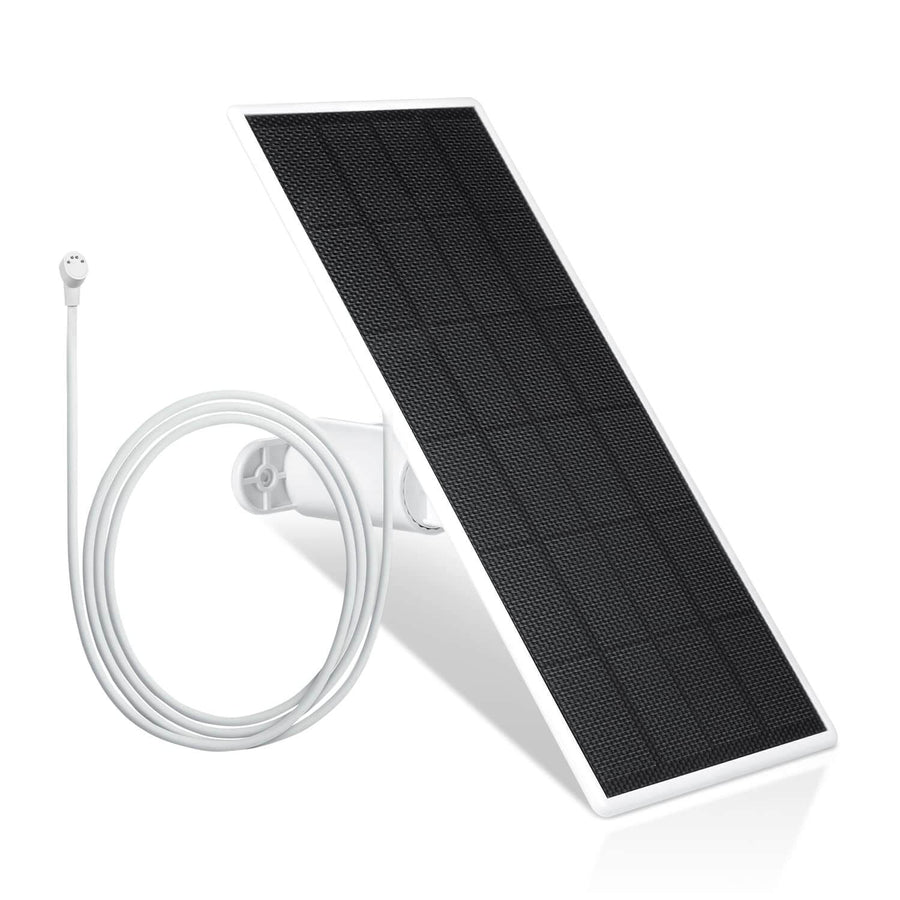
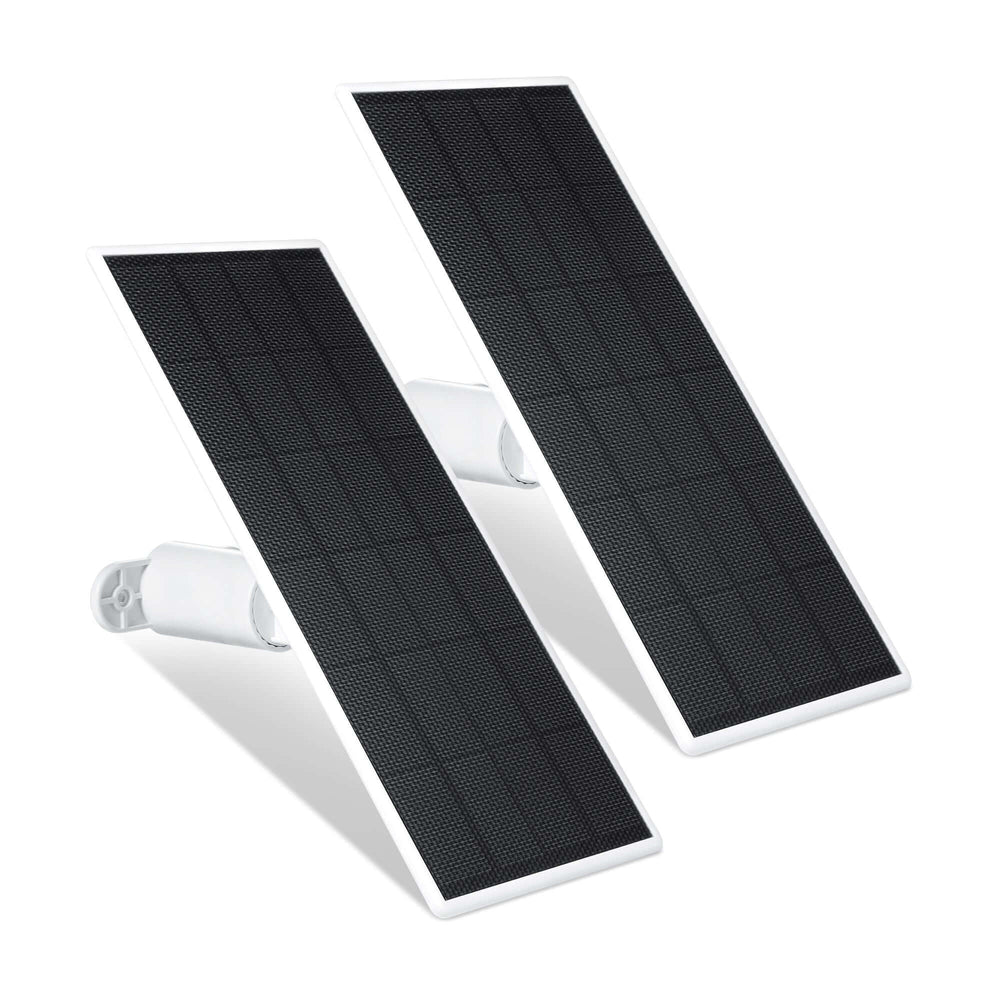
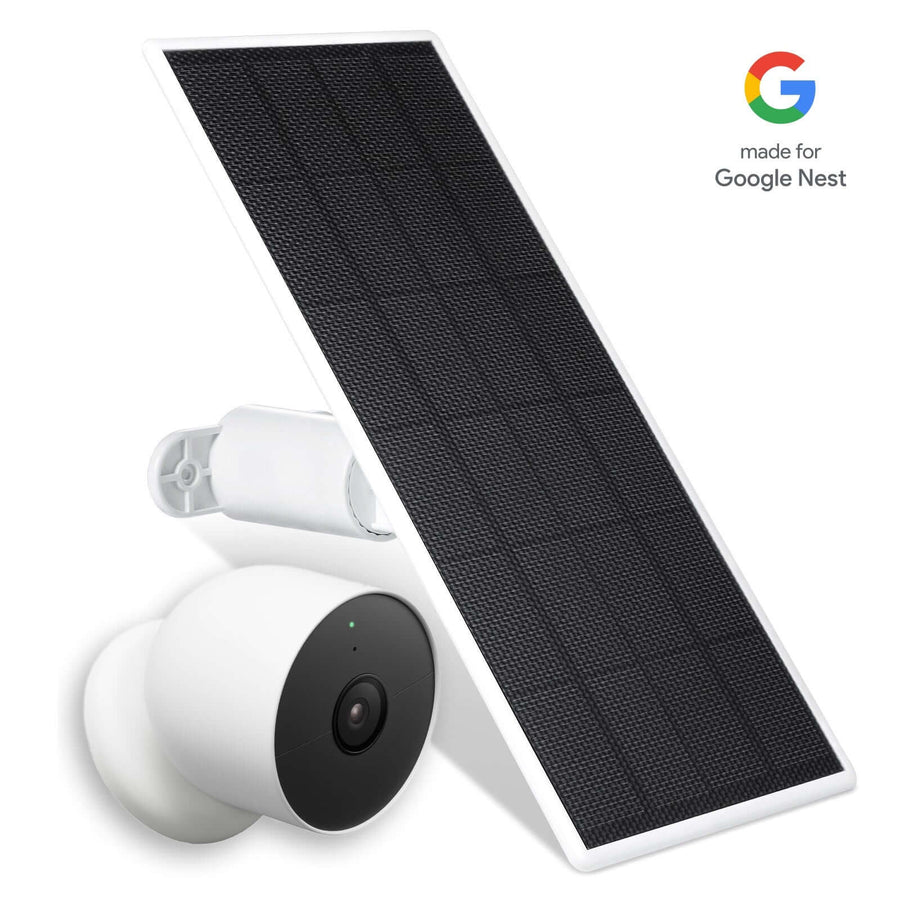
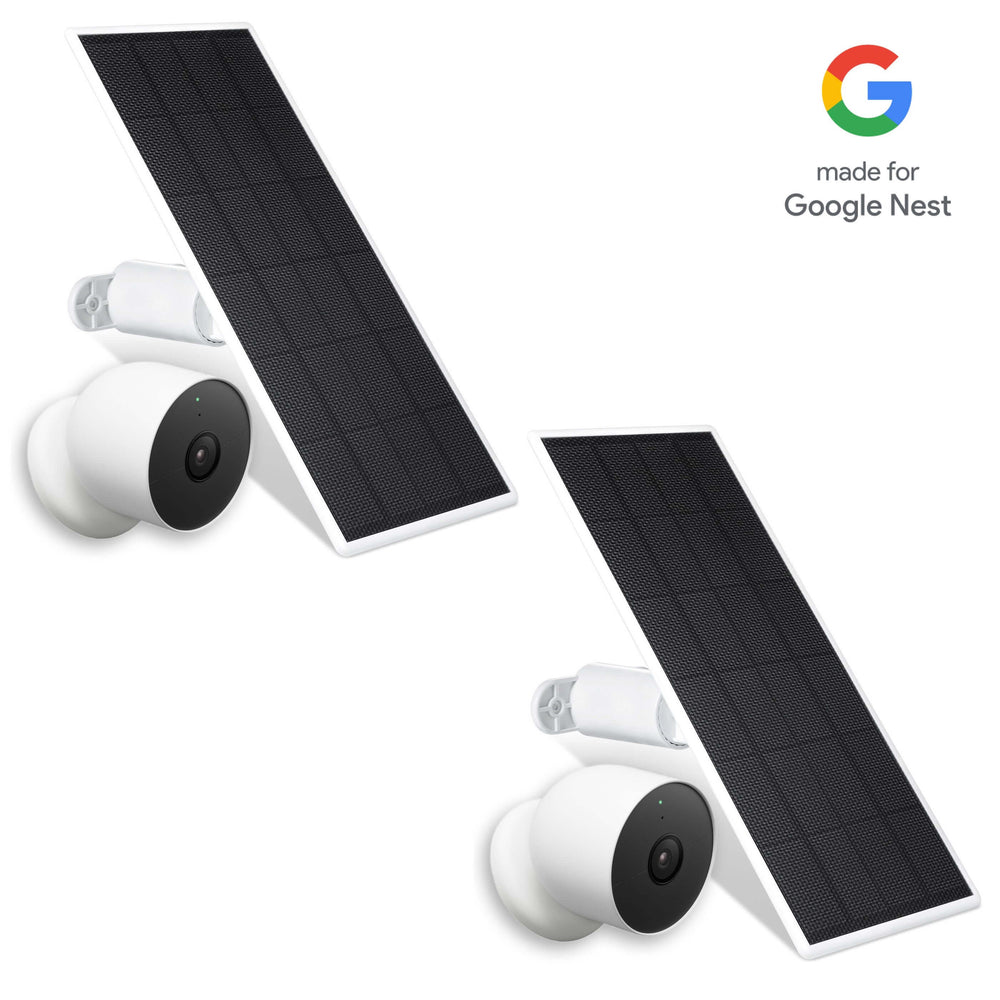
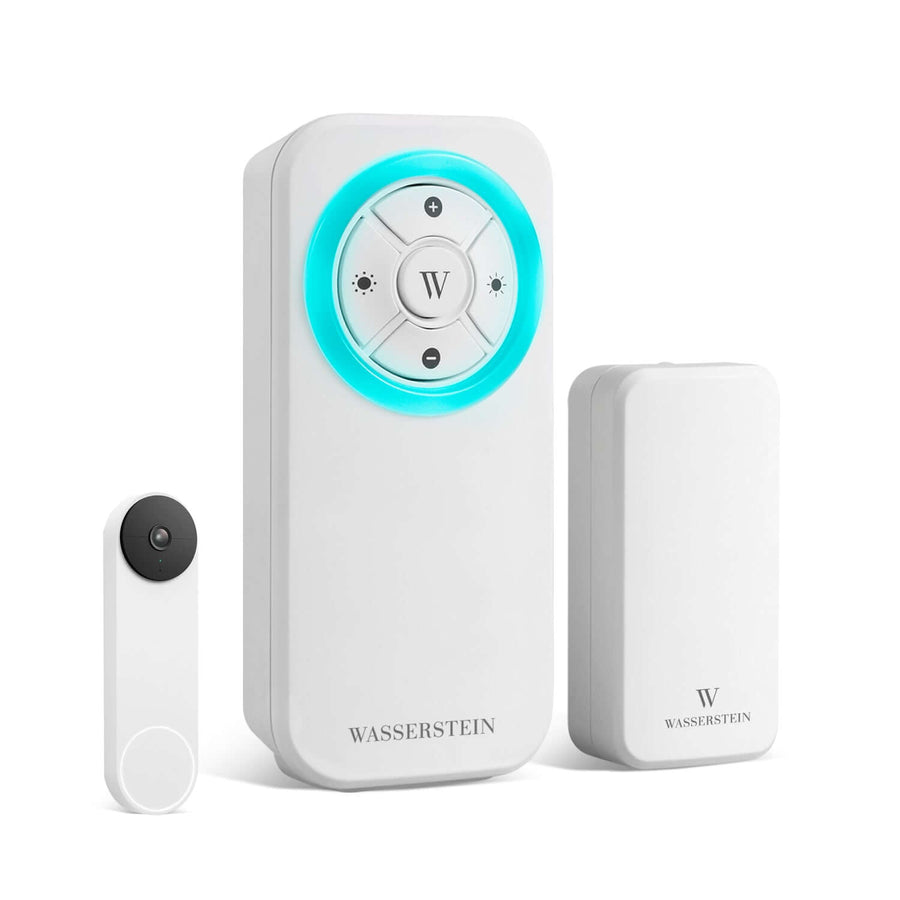
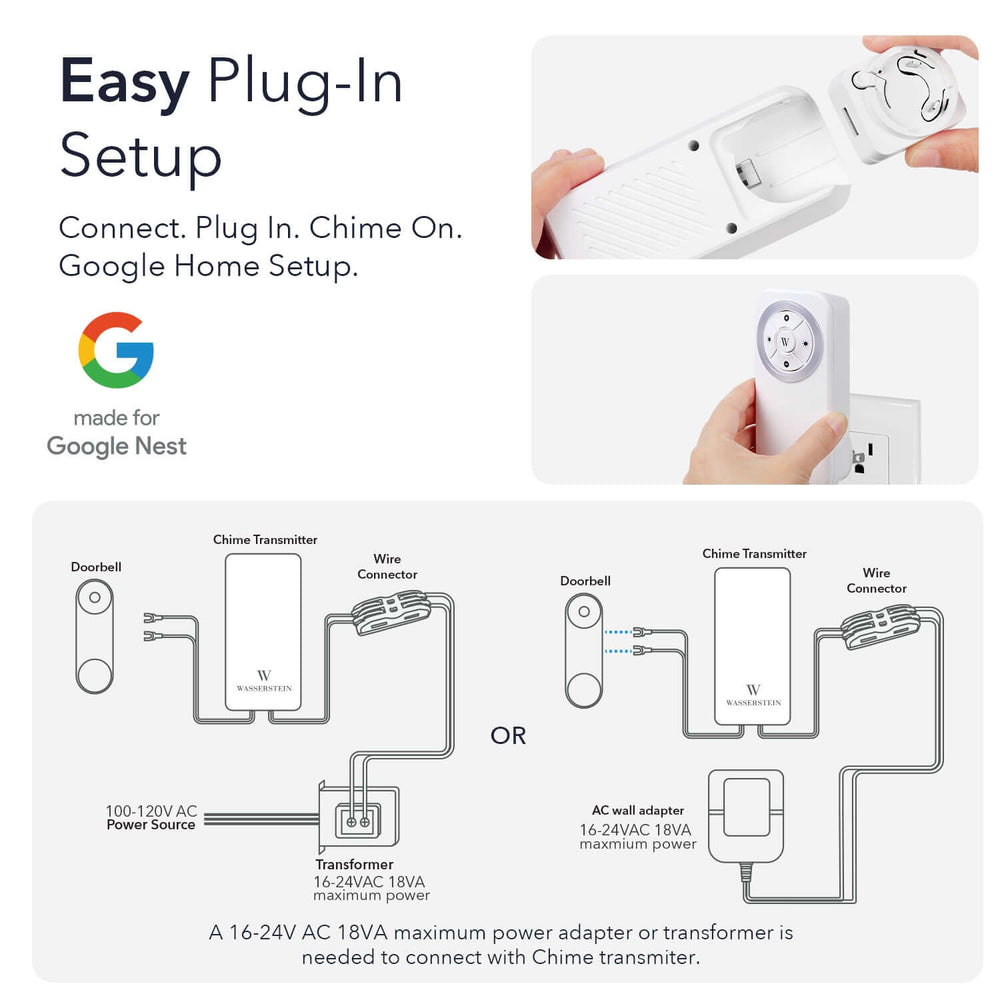
Leave a comment